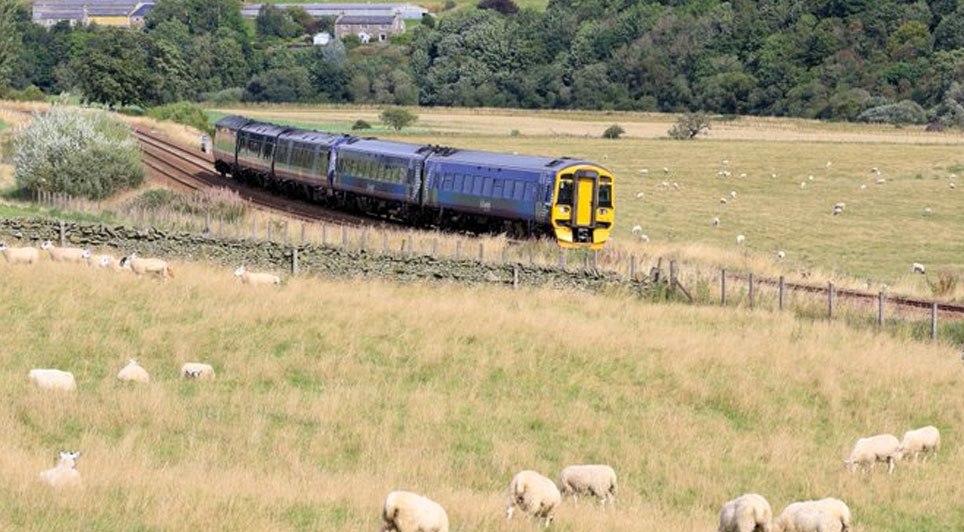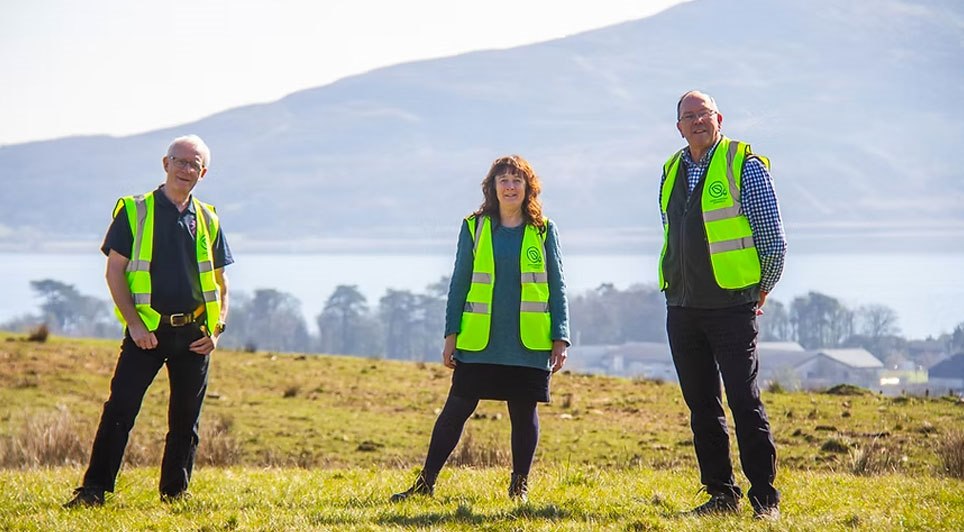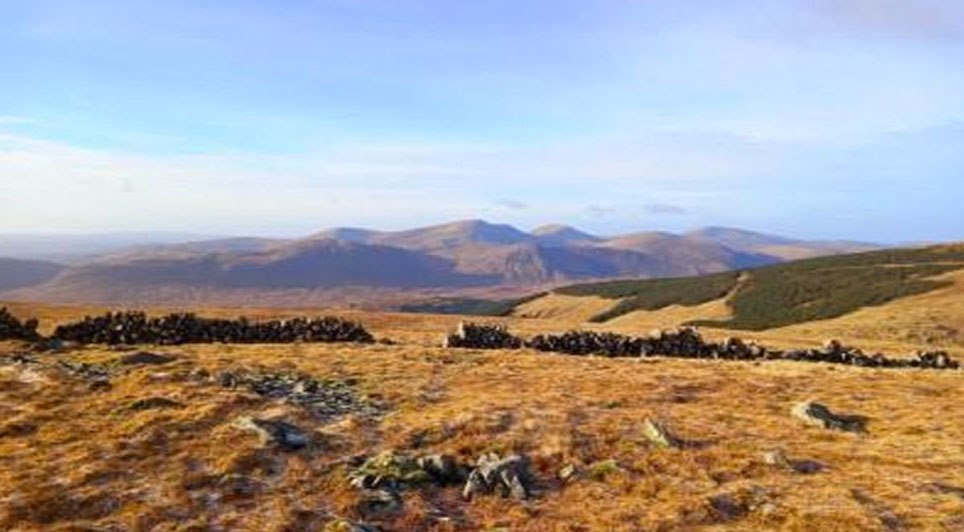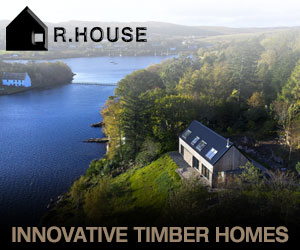Scotland's bioeconomy could support a zero carbon built environment, Built Environment - Smarter Transformation head of sustainability programmes, Jennifer Smart, has said.
She said: "In Scotland's fight against climate change, we have a number of tools in our armoury that stand us in good stead for accelerating change. As a nation, we have a strong track record when it comes to innovation and invention, with Scots being responsible for many of the technologies we turn to every day, such as the TV and the telephone.
"Combined with an excellent research base from our world-class universities, we have the skills and expertise to drive the sustainable changes needed across all areas of the economy – not least in construction and the built environment, which accounts for almost half of the UK's carbon emissions.
"Underpinned by such research, the bioeconomy in Scotland has grown significantly in recent years. By turning to nature and biotechnology, the industry is supporting a range of sectors to introduce more sustainable, bio-based products and processes that can be used as alternatives to petrochemicals.
"With ongoing materials shortages and the need for construction to reduce its carbon footprint, could the bioeconomy hold some of the answers to our sector's challenges? While it might seem quite alien for construction to turn to lab-based research, the need to change ways of working has never been more urgent and utilising the expertise from another industry could unlock significant opportunities.
"There are already cases where biotechnology is being used for the benefit of the built environment across the globe, but we now need to take it one step further and translate curiosity into meaningful action.
"One example in Scotland is the work of BAM Ritchies and the University of Strathclyde. The project team is developing a low-carbon alternative to cement using bacteria to help solidify and stabilise loose materials like soil on coastal defences and embankments. The microbially-induced calcite precipitation (MICP) system could, for instance, be injected into crumbling cliff faces to increase their strength and prevent erosion. Perhaps most importantly, its use would eliminate the need for cement – production of the material alone accounts for 8% of the world's carbon emissions.
"Another bio-based alternative making its way into construction is mycelium, a material that comes from fungi and benefits from industrial strength, meaning it can be used for a range of purposes such as cladding, structural components and insulation. It is also known to have significant carbon sequestering abilities, more so than typical soil or even Scottish peatland, making it an ideal candidate as a building material.
"Other examples of natural materials being explored by the sector include sheep's wool, hemp and even fruit peelings for insulation. Due to be completed this summer, the UK's first dedicated natural insulation factory is currently being set up by IndiNature in the Scottish borders.
"Importantly, alternative materials can help to reduce the carbon footprint of the buildings we use by capturing and storing carbon. A lot of the talk about zero carbon so far has been focused on operational consumption, and while these are more short-term, immediate changes that can be made, in the longer term we will also need to consider the role of raw materials in tackling climate change.
"Working together with the bioeconomy could help the built environment transition to zero carbon in ways that haven't before been considered. And for biotechnology companies, there could be new markets in the built environment yet to be explored.
"Both sectors are working towards a common goal – zero carbon – and by sharing knowledge and matching up the expertise on both sides, we have an opportunity to unlock huge potential. Construction is still in many ways a traditional sector which can be resistant to change, but we must be open to new possibilities in order to transform the built environment in the ways that it is needed, with collaboration as a driving force for change."
Construction News
18/05/2022
Bioeconomy Could Support A Zero Carbon Built Environment


15/04/2025
Construction of a £70 million student accommodation development at 292-298 St Vincent Street in Glasgow has reached a significant milestone, with the building now visibly rising from the ground.
Drone footage has captured the progress of the project, which is a partnership between developer Artisa

15/04/2025
Energy regulator Ofgem is expected to confirm today (April 15) its finalised Connections Reform process, designed to expedite grid connections for renewable energy projects that are ready and crucial for achieving the UK's clean power targets for 2030 and beyond.
The new connections system, anticip

15/04/2025
The ambitious transformation of Glasgow’s landmark George Square has moved into a tangible phase with the commencement of the erection of hoardings around the perimeter of the civic space. Starting today, the hoardings will enclose the Square for the duration of its 18-month redevelopment.
The pane

15/04/2025
Members of the public are invited to attend a consultation feedback event to discuss the proposed infrastructure associated with a new underground electricity transmission cable between the Kinardochy and Errochty substations in Perthshire.
The event will take place on Monday, 28 April, from 4 pm t

15/04/2025
Turner & Townsend have been appointed as project managers to develop a business case for the potential extension of the Borders Railway beyond its current terminus at Tweedbank to Hawick and Carlisle.
This key appointment will enable crucial work to progress on the project, including feasibility s

15/04/2025
Arran Community Renewables, a Community Benefit Society based on the Isle of Arran, has secured planning consent for a 6 MW solar farm. The Glenkiln Solar Farm, located approximately 1km west of Lamlash, is projected to generate 5,600MWh of clean renewable energy annually from 2027.
The £5 million

15/04/2025
A new Route Map has been published by the Scottish Land Commission (SLC) to ensure communities across Scotland secure tangible and long-lasting benefits from nature restoration projects and investment in the country's natural environment.
The practical guide is designed for landowners, developers,

15/04/2025
Award-winning principal contractor Procast Group has further expanded its presence across Scotland with the opening of a new base in Dumfries. The Hamilton-based firm has invested £30,000 in a new warehouse and office facility in the Maxwelltown Industrial Estate in Dumfries and Galloway, marking it

14/04/2025
Glasgow City Council's Affordable Housing Supply Programme (AHSP) facilitated the completion of over 1,000 new affordable homes in the city during the past year, despite facing budgetary reductions at the start of the financial year.
The initial grant of £78.687 million from the Scottish Government

14/04/2025
A key phase of Scottish Water's £11.5 million project to upgrade a strategic rising sewer main connecting Renfrew and Glasgow is set to begin, resulting in a significant road closure.
From Monday, 28 April 2025, Ferry Road in Renfrew will be closed to all vehicular traffic for a period of four mont
 Scotland
Scotland UK
UK Ireland
Ireland London
London











